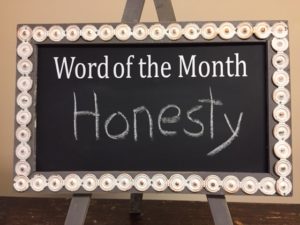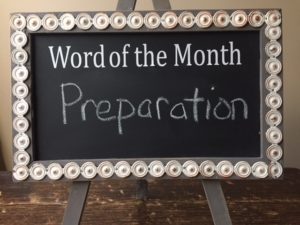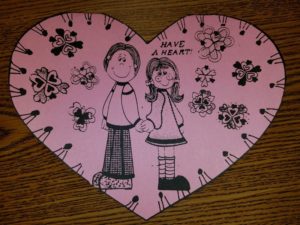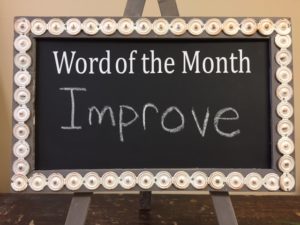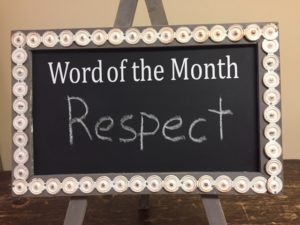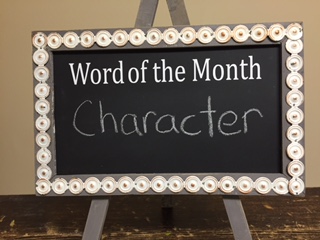It Starts with Human Nature
We all have a very human tendency to want to feel that we are right, that what we believe is true, that our perceptions are accurate. We gravitate towards those who share our view of the world and feel our perspective validated by them. Sometimes this goes to the extent of only surrounding ourselves with those who agree with us and excluding those who don’t. We live in a bubble.
Traditions of the Fathers
Often our belief systems, political positions and general view of the world are passed down to us through our parents and our education. Many people hold firm to such beliefs and positions. It becomes part of our identity – what and who we are as a group or a people. Such positions are self-reinforcing and self-perpetuating.
The biggest hope for that to change, is an opportunity to get outside one’s bubble or even take a step inside another bubble, to begin to see another perspective. Just a peek at an opposing view, and especially having one pushed upon you to educate you as to what is correct, usually has the opposite effect. We become defensive and hold more firmly to how we see things.
Judging Individuals
There is a real problem when such firmly held beliefs extend to judgments and feelings about an individual. People are complex. I believe we all have within ourselves a good core. We all started out as pure, innocent babies. We are all children of God. Yet, we also are all human. We all have faults, weaknesses and flaws. Not all choices we make are good. We all say and do stupid, insensitive, even cruel things with the potential to do others great harm, intentionally or not.
There is real danger in judging any person as inherently or completely bad. It can also be unwise to judge someone as totally good and incapable of doing wrong. Either way, everything is viewed through a narrow filter of our own bias, reinforcing a judgment we already made.
When we view an individual human being as purely good or bad, based on a preconceived belief – one that by nature we seek to reinforce and validate – we fail to see them as the complex human beings that they are. We fail to judge or treat them as we would want to be.
The Unjust Judgment of Evil
If our judgement of someone is bad – based on tradition and the beliefs of our group, or even what we think is our personal, objective assessment – we will naturally want to have that judgment validated. We will seek out messages that reinforce that belief. We pay attention to and enlarge on anything negative and ignore or dismiss anything good, forgetting that even bad people are capable of doing good. In fact, much of what we judge as bad in others, are actually good qualities taken to an extreme, or used in a way that we don’t agree with.
We judge the intent of someone we dislike to always be negative, forgetting that we don’t have the ability to read minds. Someone judged as evil cannot be capable of good, we think. If we open our minds to the thought that they could do good, then we might have to question our own judgment of them.
Being in a group that feels the same way about this person, negative messages are constantly reinforced. Even the slightest expression of doubt about something negative or consideration of something good is met with condemnation of us, so we shrink into silence. We see how the defense of this awful person by those OTHERS, has resulted in their vilification.
The Nonobjective Judgment of Good
If our judgment of someone is good – based on tradition and the beliefs of our group, or what we think is our personal, objective assessment – we will want to have that judgment validated. We will tend to give that person the benefit of the doubt when we hear anything negative. We dismiss or ignore negative things, thinking them uncharacteristic and therefore must not be true.
Such a person may do or say things very similar to someone we hate, yet are still judged as a good person. Their intent is always judged as good, even when they might act badly. We make excuses for them and deflect blame to others. We feel offense that they have been unfairly attacked when something negative is pointed out. We will defend them fervently, because we in effect are defending our perception of them and our sense of being right, as much or more than we are defending them personally.
Polarity Problems
Is there hope for a society which is polarized to such an extreme, with such certainty from both sides that they are right? If there truly is one right and one wrong position, then for one group to be right, the other must be totally wrong. Then it follows that one half of us are being deceived by and about the other. Which is really right? Who is being deceived? None of us want to believe that we have been sucked in, fooled or deceived.
But is it really an either/or? Is one position completely right and the other totally wrong? Or are we all being deceived? The better question would be to ask ourselves how we, in particular, are being deceived or mislead. But then, this requires the need to look at things with a more open mind, and to be open to the possibility that we may be wrong.
Perhaps the deception is in seeing only a selective part of the picture, and what is needed is an expanded vision? My fear is that too many of us are past the point of open minds. Crushing the opposition seems to be more the direction.
The Real Enemy
If we can stop looking at the world as US and THEM – with US being the good guys and THEM the bad guys – and see that we are all basically good guys with a common enemy seeking to destroy us all, there might be hope.
There is one who seeks to divide and destroy. That has been his aim from the beginning. He is cunning and devious and has had lots of practice. He fights not only openly against what is right, but he uses opposing ideas of right and wrong to turn us against each other. If he can convince us all that we are right and especially that the OTHERS are wrong and even evil, then he can just sit back and enjoy watching us destroy ourselves. I am sure that the devil is laughing much these days.
Change of Mind?
As I reflect back four years, I recall trying to prepare myself for what appeared to be dark days coming. At that point, I saw only two bad options, and no real good outcome. I do recall saying when I came home on election night and got a glance at the shocked faces on my TV screen, and then the numbers displayed: “Oh, so we are in for a different kind of nightmare.”
The interesting thing is that in spite of not necessarily seeing a good result, I did accept the result. And I think because of that acceptance, through the process of time and observation, my mind changed. I guess it was open a little crack. Without clinging to the belief that the outcome was wrong – kind of like the belief of a certain people in the Book of Mormon who felt that they had been wronged and the government had been stolen from them (see Alma 54:17) – I accepted it as what it was. I had enough faith in the system that we could survive for fours years. We as a country had survived much already and we had a system that hopefully would keep things in check.
That bit of an open mind allowed me to see the good that has happened. It did not change a certain personality, but I could see good fruits from a less than perfect individual’s efforts. Being freed from the need to maintain a negative judgment also opened my eyes to the unfair process of constant negative focus reinforcing the hatred. I saw a larger picture.
What is Ahead?
As I have found myself increasingly anxious about conditions in our world today, my tendency has been to try to persuade others to share my concerns, maybe with some faint hope that things might shift in the direction I see as best. After reflecting back to my resignation four years ago, I am starting to look at the future differently.
Though I would have liked to have changed the past four years, I survived it. WE have survived it. This may be just the beginning of many unpleasant things we will have to go through before the end. Our divisions may likely increase, maybe to the point of no return.
As I read the Book of Mormon, I see that things really deteriorated in just the few years before Christ came (see 3 Nephi 6-7). The government completely fell apart. Maybe our government will collapse? It was a good experiment in self-government, but successful self-government depends upon the goodness, honesty, and virtue of the citizens, and their unity around common principles. When the voice of the people chooses that which is wrong in the sight of God, we are in trouble (see Mosiah 29:27). “A house divided against itself cannot stand“, as Abraham Lincoln said. Maybe we will lose the freedoms we take for granted? We just might have to live under socialism or communism. Maybe we will have an outright civil war? Our divisions may weaken us to the point that we are easily invaded and conquered by another nation, as was the pattern in the Book of Mormon. Things could get really ugly.
Hope
So where is our hope? Where it always has been and always will be. Our hope is in Christ. He will return as prophesied and all of this ugliness will come to an end.
What will matter at that point? I hope I can get past the point of wanting to say “I told you so.” Being “right” will not really matter. It will only matter if our hearts are right. If we are prepared to be with Christ and live in a better world, not successfully or comfortably in this imperfect, and too often unjust and cruel world. Preparation for that will require becoming a better person. Will that be our focus going forward?


